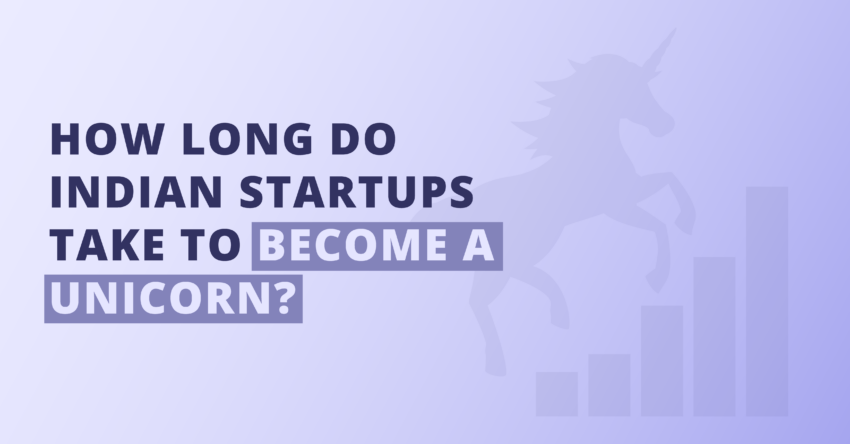The Indian private market continues to attract significant investor interest, with Series B funding rounds showcasing robust capital deployment across multiple sectors. Based on an analysis of 44 Series B deals from January 1, 2024, to December 1, 2024, this report highlights key trends. It also examines sectoral performance and investment appetite in the mid-stage…
Read moreCategory: Growth
Posts focussed on growth, its measurement and our own data around growth metrics and research on them.
How many attempts does it take to build a unicorn?
India’s startup ecosystem has grown rapidly over the last decade, producing more than 100 unicorns – companies valued at over $1 billion. While the spotlight often shines on these unicorns’ market dominance and innovation, an equally compelling story lies beneath: the entrepreneurial journey of the founders. According to an analysis by PrivateCircle Research, about 60%…
Read moreHow long does it take Indian startups to become a unicorn?
Indian startups typically take a median of 7 years from incorporation to achieve unicorn status (companies with a valuation of $1 billion or more). However, each business is different and so are their growth trajectories. For instance, Ananth Narayanan-led Mensa Brands became a unicorn in just 6 months, while Five Star Business Finance took over…
Read moreLooking before You Leap!
On the one hand, we at PrivateCircle Markets enable investors to get a better understanding of companies that are coming their way. On the other, we also enable companies to get a better understanding of investors that they should be talking to before they decide to take a call. In a way we are on…
Read more3 Tips for Startups Fundraising in this Market
As funding winter extends into another year, founders need to plan for potential challenges in their fundraising plan. Seasoned founders adopt some contingency planning regularly and it is worthwhile for every founder to do so. Startup founders should start with a clear understanding of how long they can stay in the fundraising mode, the importance…
Read moreWarm Introduction >>> Cold Outreach
There are two logics in entrepreneurial decision making: Causal and Effectual. Let’s understand this in the context of fundraising. If decisions are made using causal logic, the founder makes a list of potential investors and starts sending cold pitches in hope of a kind reply. Whereas, effectual decision makers go about finding a mutual connect…
Read morePremiumizing Everyday Experiences for India
We saw the emergence of a lot of startups, particularly in the consumer sector, attacking the “mass-premium” segment.
Today on PrivateCircle Markets we see a bunch of startups positioning themselves as mass premium and delivering a sense of exclusive, premium and differentiated offering that appeals to the masses in their segment.
Let us tease you on some mass-premium companies on PrivateCircle Markets. See if you can identify them.
Read moreAre you tired of being D’ed in your sales campaigns?
Discover how PrivateCircle Connect can help you target and filter only the most qualified prospects for your business. With a unified interface, CRM integrations, and user-defined criteria, this tool offers a clear edge in screening and finding decision-makers. Learn more today with PrivateCircle Connect.
Read moreBuilding your Pitch Deck: For Founders/Entrepreneurs in India
Introduction Investor expectations are critical to a startup’s success, especially in India where the competition is huge, intense and relentless. More often than not, Investors are spoiled with choices and are typically looking for innovative, scalable, and profitable business ideas. As a founder, it is important to understand how investors approach a pitch deck and…
Read moreFrom Seed to Series: Understanding the Significance of First Cheque vs. Follow-On Cheque(s) for Indian Startups
The two most common fundraising terms that every Indian entrepreneur comes across are “first cheque” and “follow-on cheque(s)”. These terms refer to the initial and subsequent investments made by an investor in a startup respectively. Raising capital is an integral part of building and scaling a startup in the Indian market. Knowing the differences between…
Read more




